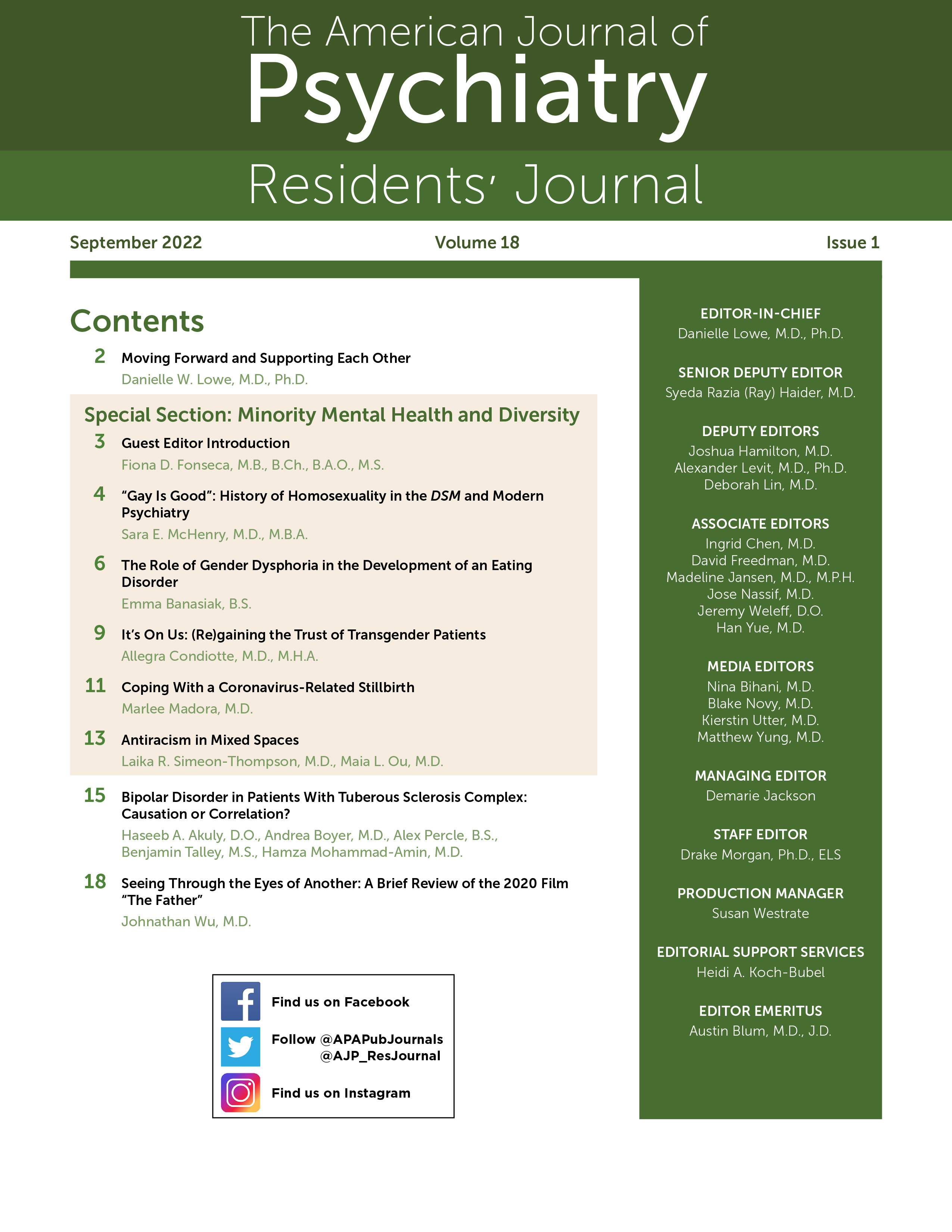Guest Editor Introduction
With the support of the editorial board of the AJP Residents’ Journal (AJP-RJ), I am proud to present our most recent theme section. Creating this section on minority mental health and diversity was an ambitious undertaking because the subject is not only amorphous but also vast. As submissions and revisions rolled in, it was a challenge to select articles for this section. We received multiple excellent submissions on a variety of diverse topics and in a number of diverse formats to highlight the theme. We were simply unable to include every suitable submission.
This short section is unable to do justice to the nuances of every intersection. Over the past few years, voices are being raised about issues that have always been present—voices that can now be heard within the pause of the pandemic. It is impossible to avoid thinking of the multiple recent legislative processes and events that negatively affect the well-being of individuals in this country, particularly those marginalized because of their intersecting identities. In this light, it is critical that we consider social determinants not just in the context of health but also in the context of our profession. Trainees and medical students are the new wave of psychiatry, nurturing our profession as its composition evolves to more closely resemble that of the communities we serve. Through this section, our journal—your journal, the AJP-RJ—takes a small yet confident step toward the future by amplifying diverse voices and stories in psychiatric discourse.
I am deeply grateful for this editorial team, who have welcomed me to take up space as a queer, immigrant, trainee psychiatrist and editor of color by rallying beside me to call for submissions. May this section serve as a spark with the potential to start a warm fire around which we can create meaningful connections and begin to reconceptualize how we approach our development as a profession, in terms of how we engage both with each other and with our patients. I invite you all to join in and continue this conversation.



